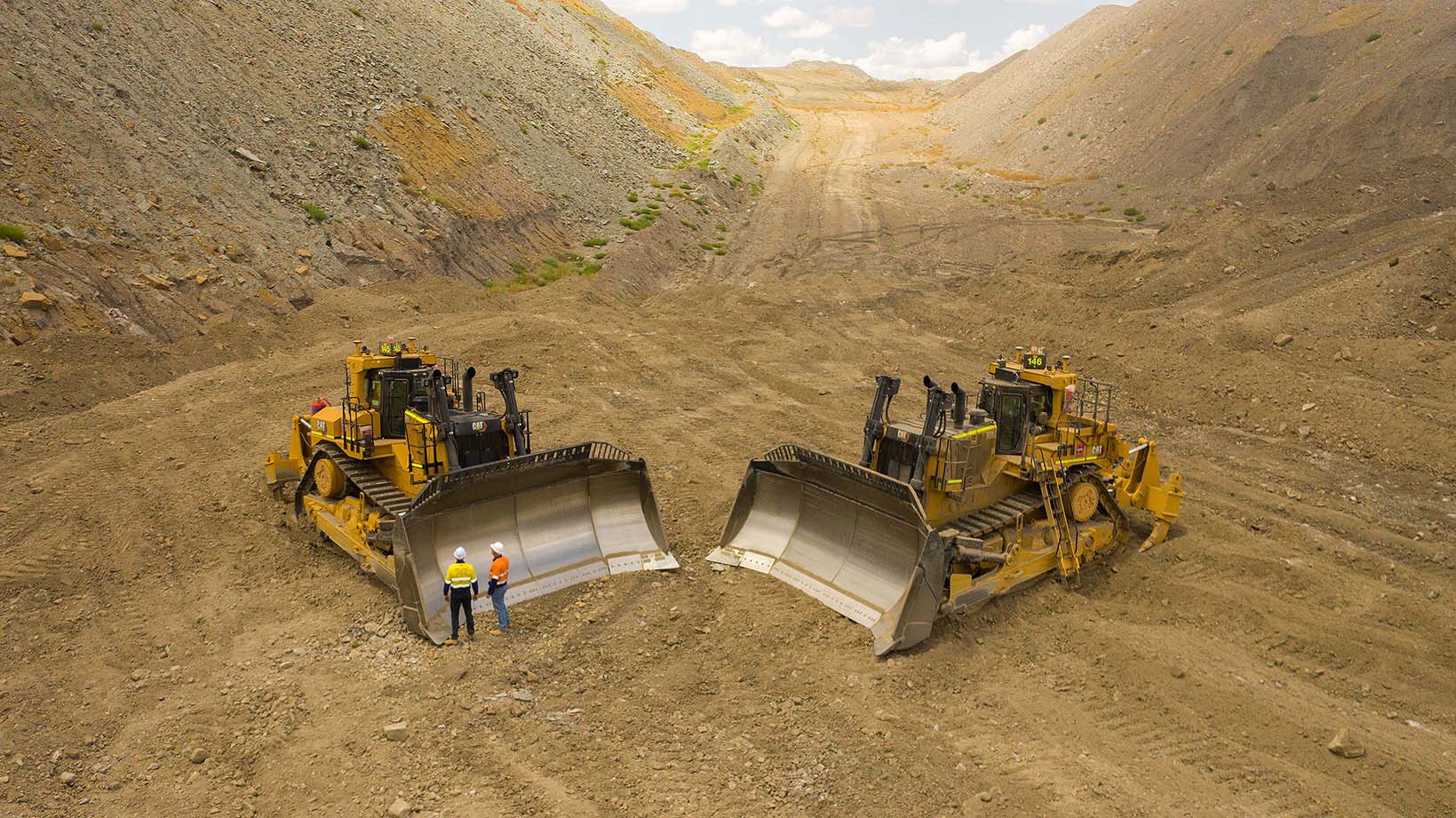
Sime Industrial pins hope on mining recovery
Sime Industrial pins hope on mining recovery

A key component of the Sime Darby Group, Sime Darby Industrial Australasia (SDI) hopes to ride out short-term demand challenges and expects better months ahead.
Sime Darby Bhd group CEO Datuk Jeffri Salim Davidson says a reduction in both steel production and electricity generation, both key to SDI’s operations, have led to the fall in prices for both metallurgical (met) and thermal coal.
Met coal spot prices have fallen from US$160 per tonne to US$105 per tonne, while thermal coal prices have dropped to US$50 per tonne.
“The fall in demand has, in turn, led mining customers to tighten their capital allocations and defer variable cost contracts like labour hire and contract mining to preserve cash – we foresee this may soften short-term demand for our equipment and services, ” he tells StarBizWeek.
SDI sells, rents, services and supports the Caterpillar range of heavy equipment used in mining and a number of other sectors in the Australasia region.
Its business is 70% mining and 30% construction where its Australian operations primarily services met coal and thermal coal-mining customer operations.
Met coal is used to make steel while thermal coal is used to generate electricity.
However, Jeffri is optimistic that the commodity prices will recover.
“With governments worldwide expected to rely on infrastructure spending to stimulate economies and feed demand for steel, and therefore met coal, met coal prices are expected to recover in financial year ending June 30,2021 (FY21) to between US$140 and US$150 per tonne and support mining operations for both types of coal, ” he says.
SDI managing director Dean Mehmet agrees, saying that he believes the current conditions are a short-term effect and expects prices to improve soon.
Jeffri predicts that within the construction segment, government stimulus in Australia and New Zealand is expected to encourage construction activity, which is likely to begin in the second half of FY21.
“In New Zealand, where our business is 95% construction and 5% mining, the forestry sector is expected to make a comeback in the short term due to European timber supply constraints and demand from China post-Covid-19, ” he adds.
As it stands, SDI is a relatively large contributor to overall group profits.
For the financial year ended June 30 (FY20), it contributed 44.3% of the group’s pre-tax profit, generating some RM717mil out of total group pre-tax profit of RM1.62bil.
With governments worldwide expected to rely on infrastructure spending to stimulate economies and feed demand for steel, and therefore met coal, met coal prices are expected to recover in financial year ending June 30,2021 (FY21) to between US$140 and US$150 per tonne and support mining operations for both types of coal.
Dato' Jeffri Salim Davidson, Group Chief Executive Officer
Mehmet says SDI’s earnings growth has generally followed the resource cycle that runs for about seven years.
Momentum has legs
“We believe we are three years into the cycle and the momentum still has legs, ” he says.
“In terms of earnings, we are optimistic that we will continue to grow.”
The growth, he says, will be driven by the unit’s focus on product support for recurring income and continued expansion of asset management and productivity solutions.
He doesn’t dismiss the idea that a prolonged Covid-19 pandemic will impact the growth of local and global economies, thereby further affecting demand for resources.
“Another challenge would be the trade tensions between China and Australia, which could impact coal exports if this escalates further, ” Mehmet adds.
But the goal to grow remains for now and in Australia and New Zealand, two of its bigger markets in Australasia, the plan to continue to grow market share is still on the plate.
Currently, Hastings Deering, SDI’s Australian business unit, owns 25% of the market share for mining and construction equipment in Australia.
“We hope to grow this by 2% in the next two years, ” Mehmet says.
Its industrial operations in New Zealand, Terra Cat, has grown its market share from 14% to almost 17.3% since SDI acquired the company in late 2019.
The growth in market share was achieved through a realignment of sales functions, an increase in inventory levels to ensure the company has products available when customers want them and a focus on improving customer experience, Mehmet says.
Away from growth plans, SDI has also put into place some strategies to strengthen the overall operations of the business, with the hope of making it more efficient.
Mehmet says it embarked on a “digitalisation journey” more than two years ago, with the aim of creating an “industry-first technology platform” that would reduce cost, better serve customers and create opportunities for improving revenue and shareholder returns.
“Our efforts culminated in our very own proprietary system based on the latest cloud-based Software as a Service (SaaS) technology and data-sharing platform to build an integrated digital ecosystem of systems (Caterpillar, SDI Enterprise Resource Planning, and other third-party systems), connecting 60 companies in 10 countries in three languages.”
The focus was to enhance both customer and employee experience and potentially come up with a new business model, Mehmet says.
According to him, SDI has released digital solutions at a fast pace in the early stages of maturity and then evolved or co-created the products along with its people on the ground.
“As a result, the pull effect from the business has been massive as our employees see their ideas and feedback becoming real and embedded in the ecosystem.
We are looking to leverage on data to provide consultancy services to our customers on productivity insights, maintenance planning and fleet scheduling, which will create customer value through enhanced productivity.
Dean Mehmet, Managing Director, Sime Darby Industrial, Australasia
“In terms of solutions for our customers, we are looking to leverage on data to provide consultancy services to our customers on productivity insights, maintenance planning and fleet scheduling, which will create customer value through enhanced productivity.”
Without elaborating, Mehmet says SDI is already seeing significant cost savings, revenue generation, employee productivity and improved customer experience through its digitalisation initiatives.
SDI’s Australasian operations are spread over Australia, New Zealand, Papua New Guinea, Solomon Islands, New Caledonia and Christmas Island.
At last look, the Sime Darby group is valued at over RM16bil.
Republished from The Star
https://www.thestar.com.my/business/business-news/2020/09/19/sime-darby-industrial-pins-hope-on-mining-recovery